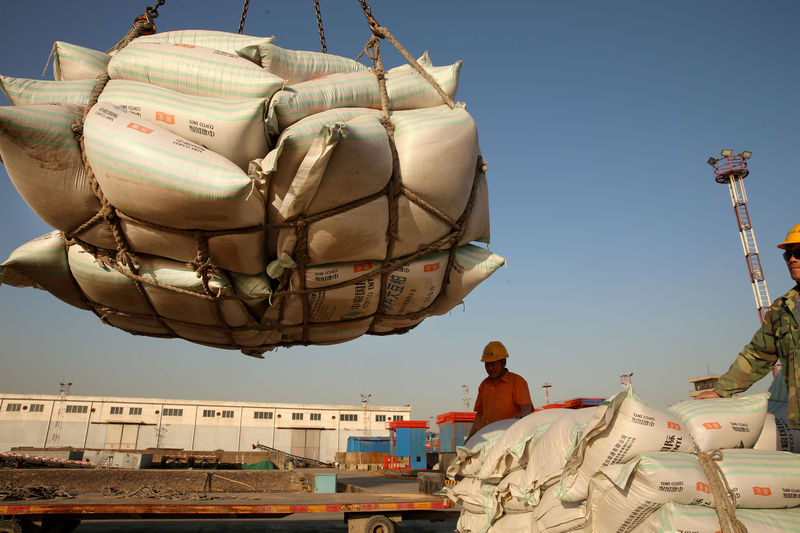By Karl Plume
CHICAGO (Reuters) - Privately run Chinese firms bought at least 10 boatloads of U.S. soybeans on Thursday, the country's most significant purchases since at least June, traders said, ahead of high-level talks next month aimed at ending a bilateral trade war that has lasted more than a year.
The soybean purchases, which at more than 600,000 tonnes were the largest by Chinese private importers in more than a year, are slated for shipment from U.S. Pacific Northwest export terminals from October to December, two traders with knowledge of the deals said.
The purchases were another indication that trade tensions between Washington and Beijing could be easing, after hitting a low last month when China suspended all U.S. farm product purchases in response to threats by President Donald Trump to impose more tariffs on Chinese goods.
Benchmark Chicago Board of Trade soybean futures <0#S:> jumped to one-month highs on Thursday, with the actively traded November contract
Beijing this week renewed a promise to buy U.S. agricultural goods such as pork and soybeans, the most valuable U.S. farm export. Large agricultural product purchases are a key U.S. stipulation for a trade deal, but the two sides remain far apart on other issues. .
Thursday's soybean deals were the largest among private Chinese importers since Beijing raised import tariffs by 25% on U.S. soybeans in July 2018 in retaliation for U.S. duties on Chinese goods. Duties were raised an additional 5% this month.
Other soybean purchases over the past year have been made almost exclusively by state-owned Chinese firms which are exempted from the steep import tariffs.
Beijing in July offered to exempt five private crushers from import tariffs on U.S. beans arriving by the end of the year, but very few deals took place before buying was suspended.
Earlier on Thursday Beijing said Chinese companies were inquiring about prices of agricultural goods. [L3N2631SW]
"I'm impressed that the day they allow their commercial interests to come back and buy from the United States, here we've got this much sold immediately," said Jack Scoville, vice president with Price Futures Group in Chicago.
"Clearly, they're trying to show what they can do if we get back to somewhat of a normal trade relationship," he said.
Also on Thursday, the U.S. Department of Agriculture (USDA) reported China bought 10,878 tonnes of U.S. pork in the week ended September 5, the most in a single week since May.
U.S. meat traders have been anticipating a pork shortage in China due to an outbreak of African swine fever, a fatal pig disease that has reduced the Chinese herd by a third since it arrived in the country more than a year ago. China is therefore willing to make some U.S. purchases despite a 72% tariff.
U.S. soybean exports to China, the world's top buyer, have plummeted during the bitter bilateral dispute, with swelling supplies sending prices to near-decade lows and U.S. farmers struggling to turn a profit.

China has largely turned to South America for soybeans since the trade war began. U.S. soybean sales to China in 2018 dropped 74% from the previous year to a 16-year low.